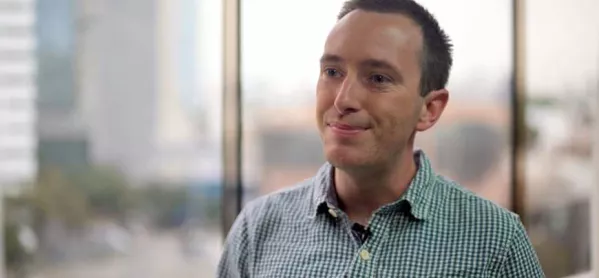Teachers play ‘whack-a-mole’ as burden falls on schools

Teachers are playing “a game of whack-a-mole” with problems facing children in their care owing to a “lack of joined-up working” across different services, an influential think-tank leader has said.
And the Covid crisis has only served to highlight our “hollowed-out system”, with schools treated as the “single point of failure”, which “can’t be allowed to break”, according to the founder of the Centre for Education and Youth (CfEY).
Loic Menzies, who recently announced that he is stepping down from his role as chief executive of CfEY after establishing the organisation 12 years ago, told Tes that teachers have been forced to pick up the pieces as “thresholds for need” have become “so elevated because of a decade of austerity”.
Workload: Stretched teachers fill gaps left by ‘poor parenting’
CfEY: 4 reasons to ‘set teachers free’ by changing assessment
Advice: 5 ways to tackle increased teacher workload in lockdown
Asked to reflect on how the education workforce changed over the time he was in charge of the think tank, Mr Menzies said that teachers are now “constantly having to respond to the next problem that’s reared its head”.
“When we first started up CfEY we entered the period of austerity. And as an organisation, because we look beyond just schools and think about everything that impacts on young people - the wider youth sector, too - we saw all the dropping away of some of the services that young people in schools rely on to make sure that pupils are ready to learn,” he said.
“And I think that’s something we’ve really watched over the last 10 years or so and is a big theme in the book that we’re publishing. So in Young People on the Margins, we’re talking about this lack of joined-up working across different services. And that means that so much more is falling on teachers.
“The fact that so much of that work is being taken away means that teachers are each time having to go, ‘Okay, well, we’ve got this problem, now we’re going to have to do something about it rather than someone else being able to help’. So it becomes a bit of a game of whack-a-mole - of teachers constantly having to respond to the next problem that’s reared its head rather than that burden being spread out across a coherent system.”
Mr Menzies pointed to cuts to mental health services, arguing that “teachers are having to do far more than they ever had to about young people’s mental health and wellbeing because a lot of the services they might have counted on in the past have been stripped away and the so-called ‘thresholds for need’ become so elevated because of a decade of austerity”.
He said: “When you get thresholds of need that are that high because of everything else being chopped away, what are schools and teachers supposed to do? Just say, ‘oh well, that’s not going to happen’?
“No, they are clearly going to jump in because the bare basics that need to be in place for a child to be ready to learn are no longer being dealt with elsewhere.
“So suddenly schools and teachers are having to respond to all of that.”
Mr Menzies also said the Covid crisis has highlighted our “hollowed-out” system.
“Basically, the government turned to schools as its one solution for issues affecting young people, and schools were expected to solve the many, many functions there are,” he said.
“So the crisis meant we needed an arrangement for childcare. That was schools. The crisis meant we needed a solution to learning at home. That was schools. We needed a solution to qualifications so that we could get children on to the next stage in their progression. That was schools. Every time, it’s schools and teachers, and it shows that we’ve got this hollowed-out system in which we’ve got a single point of failure, which is schools.
“And therefore, if that single point of failure can’t be allowed to break, then more burden has to be put on schools and teachers. And when it comes to the social inequality and the impact of the austerity that I was describing, we then see that writ large in what’s happened. So you see the fractures in a system when you put it under strain.”
Mr Menzies said CfEY’s first full-length book, Young People on the Margins, which will be published in March, is about helping teachers to avoid pupils falling through the cracks.
“There’s an example in there which is a brilliant story a teacher told me. She was a primary school teacher and she had a thing she did every year where, after the first week of school, she’d try and write down the names of each of the children in the class,” he said.
“And she’d always find that there were one or two who were the sort of invisible children who she didn’t yet remember. And so, she’d then take those two names and write them down and have them on the inside of her cupboard, so that every time she went to her cupboard, she opened it and saw these two children’s names, and was reminded to find out a bit more about them and understand a bit more about them.
“And I think it’s a nice analogy for the efforts that teachers have to go to to make sure that pupils don’t fall through the cracks and be invisible in that way.”
You need a Tes subscription to read this article
Subscribe now to read this article and get other subscriber-only content:
- Unlimited access to all Tes magazine content
- Exclusive subscriber-only stories
- Award-winning email newsletters
Already a subscriber? Log in
You need a subscription to read this article
Subscribe now to read this article and get other subscriber-only content, including:
- Unlimited access to all Tes magazine content
- Exclusive subscriber-only stories
- Award-winning email newsletters